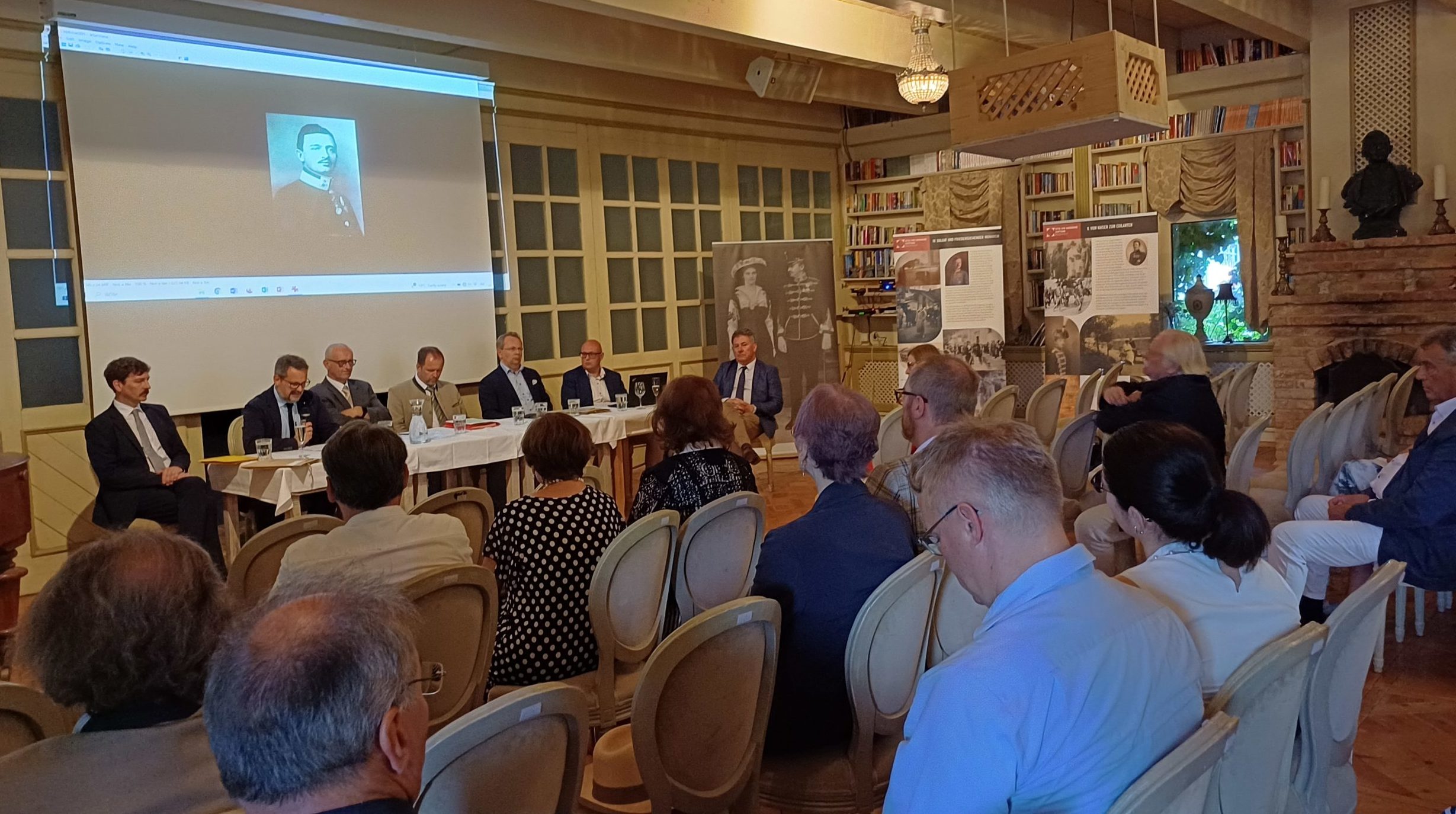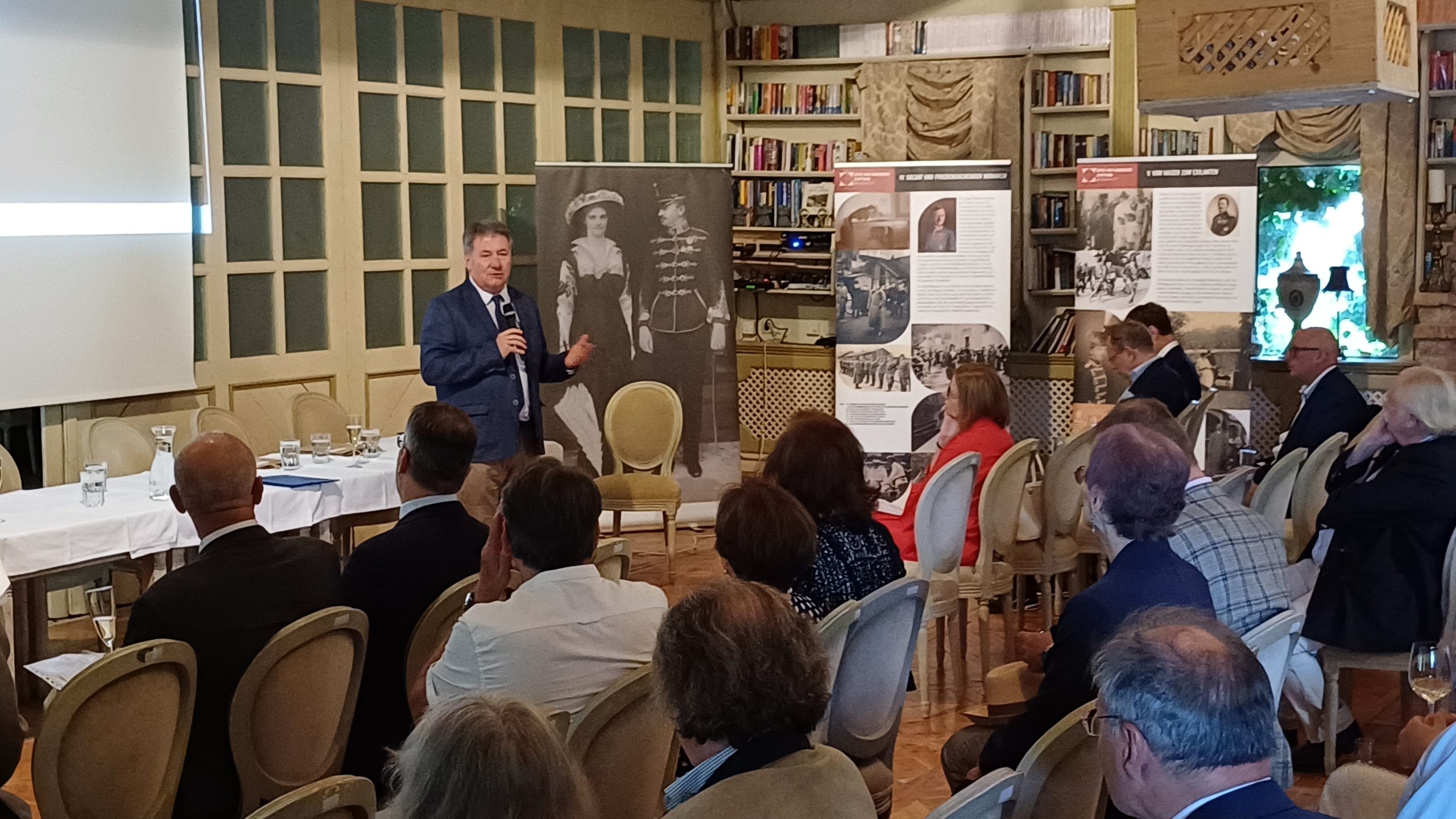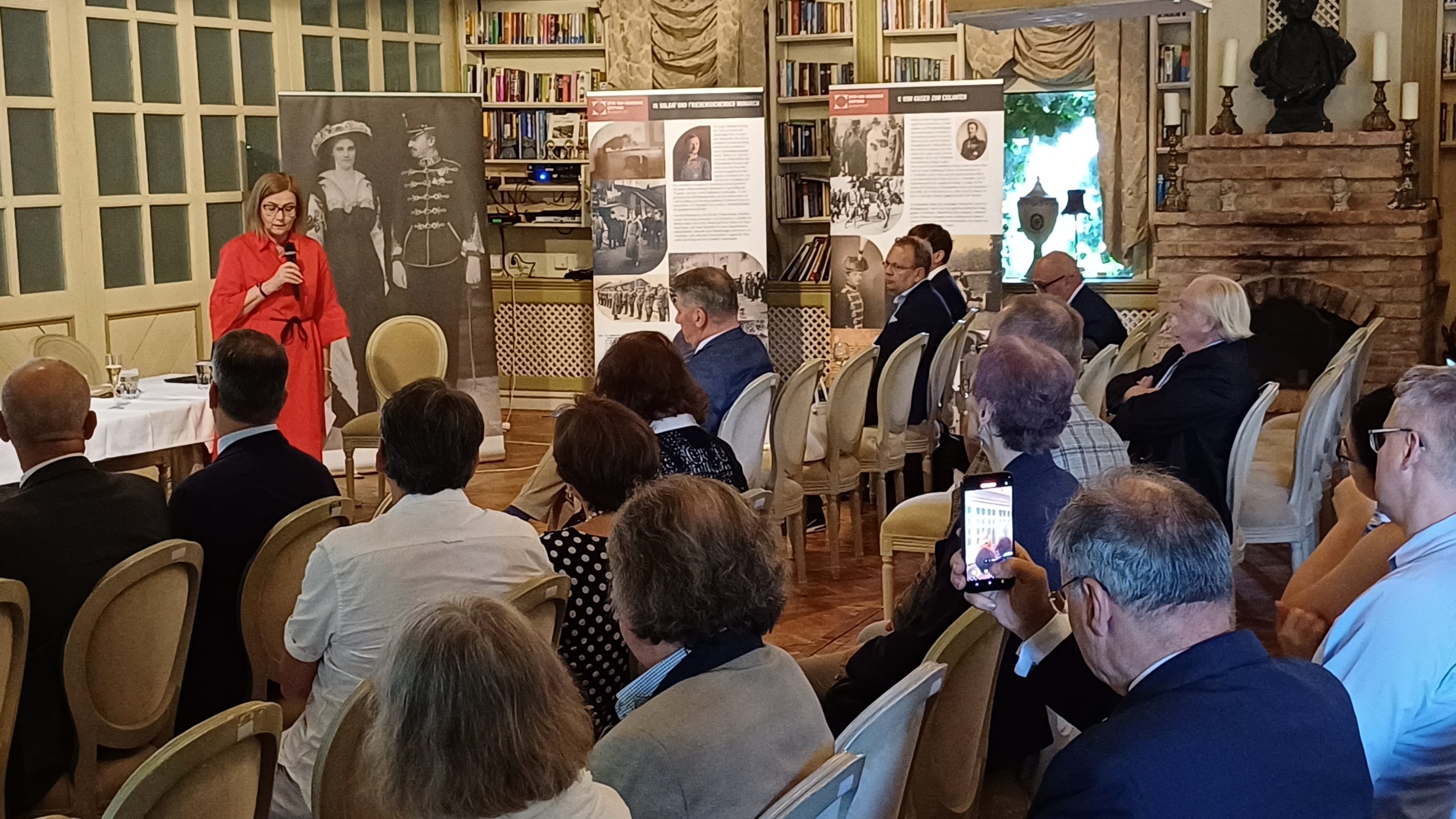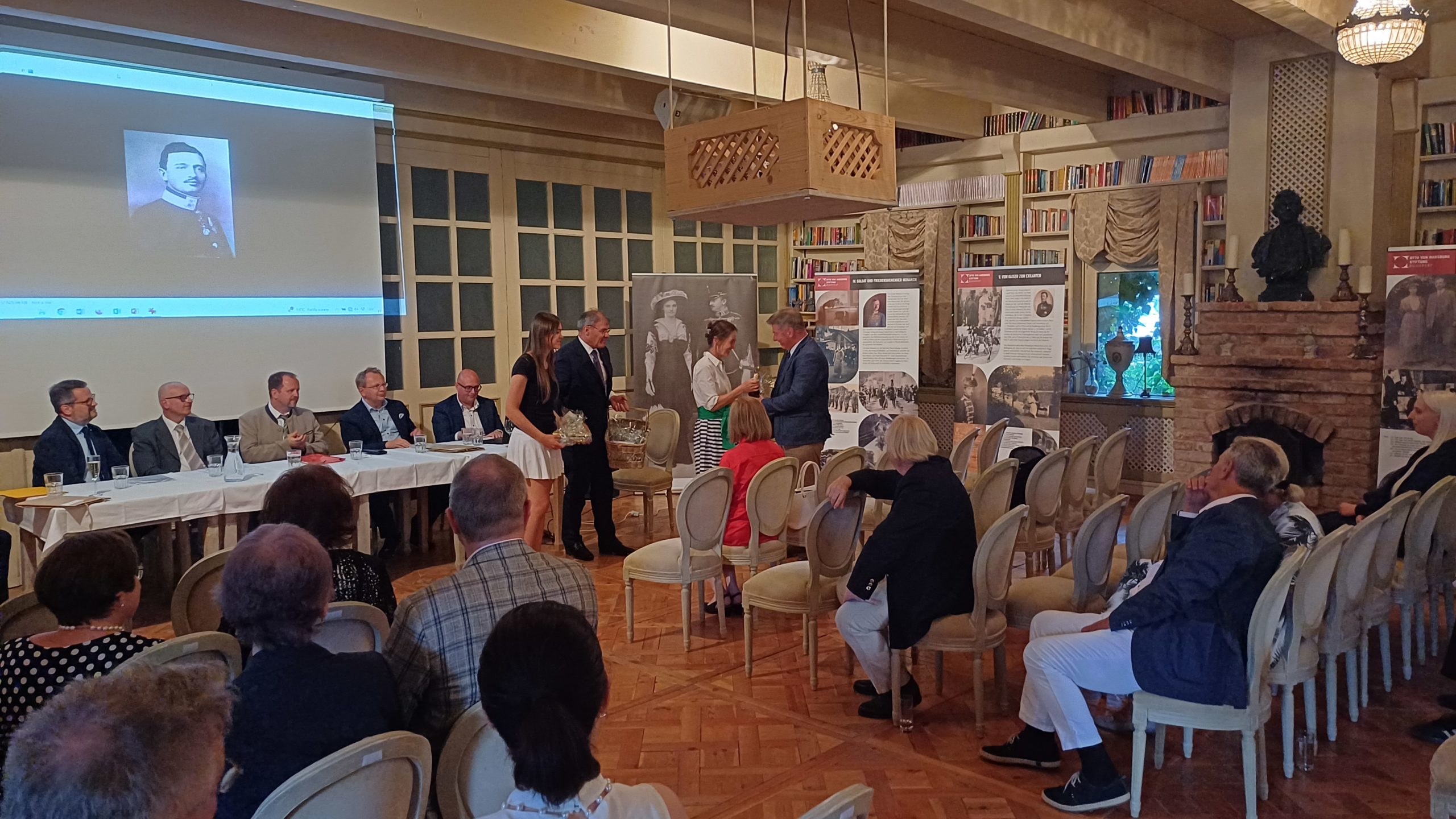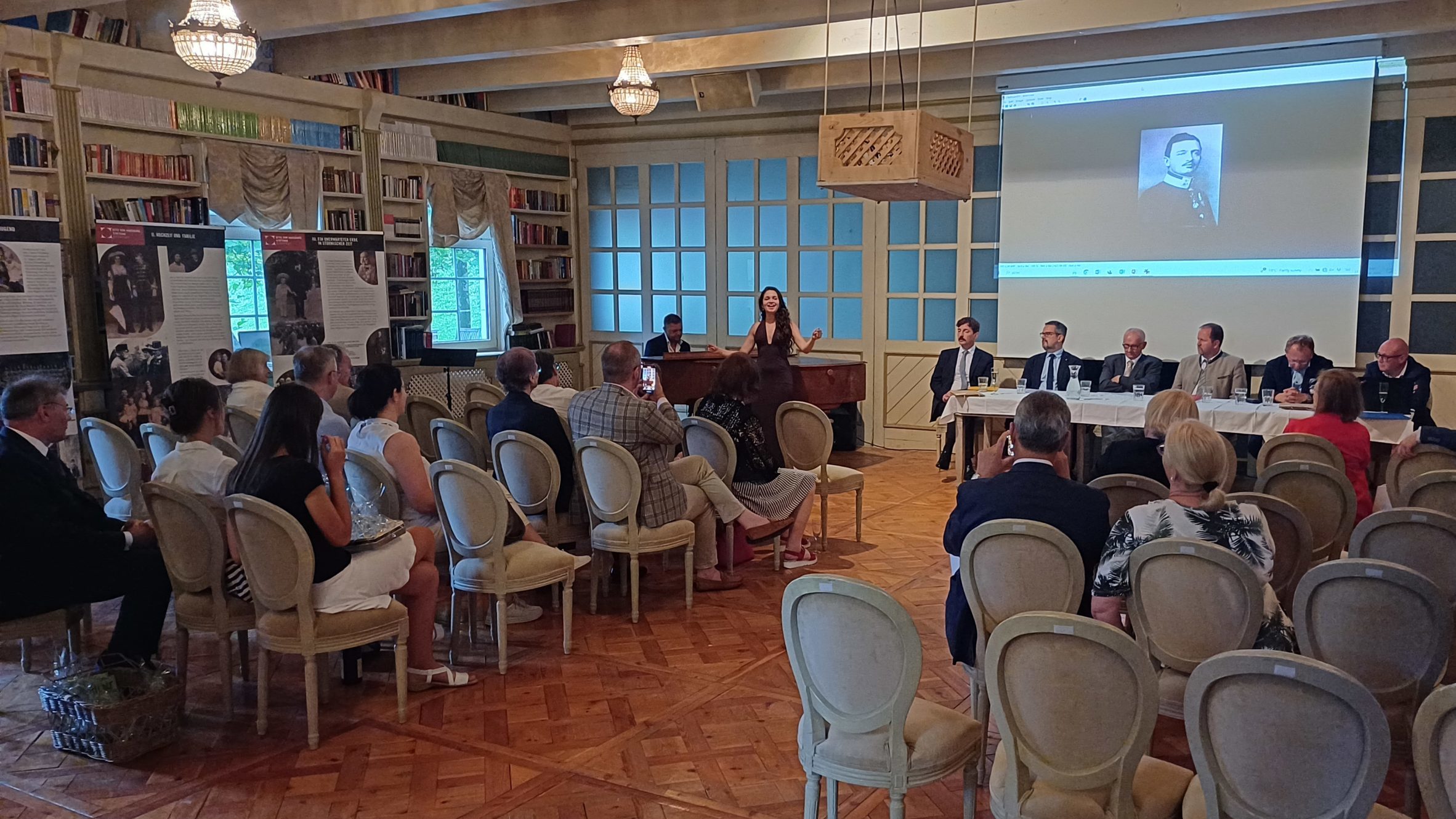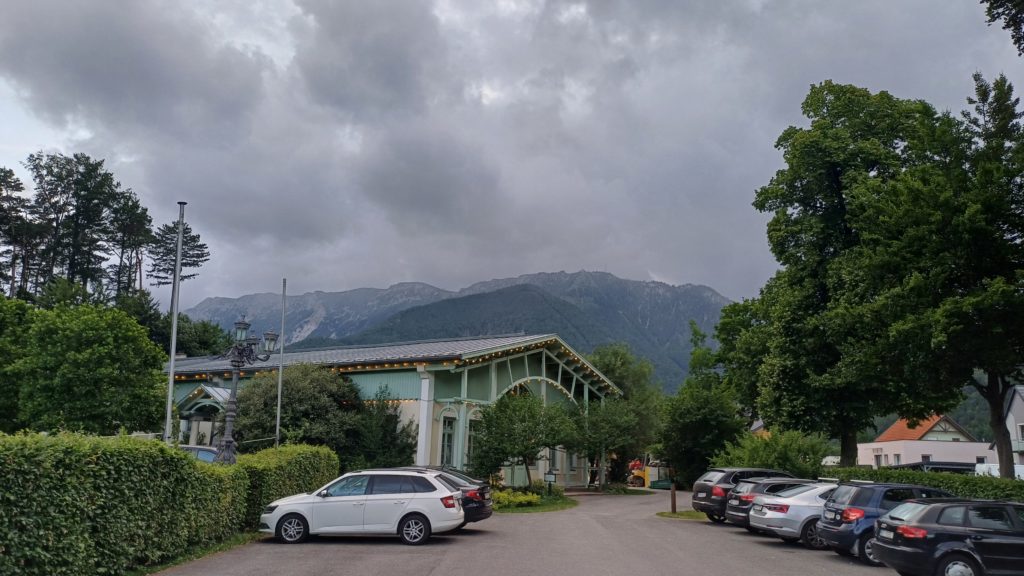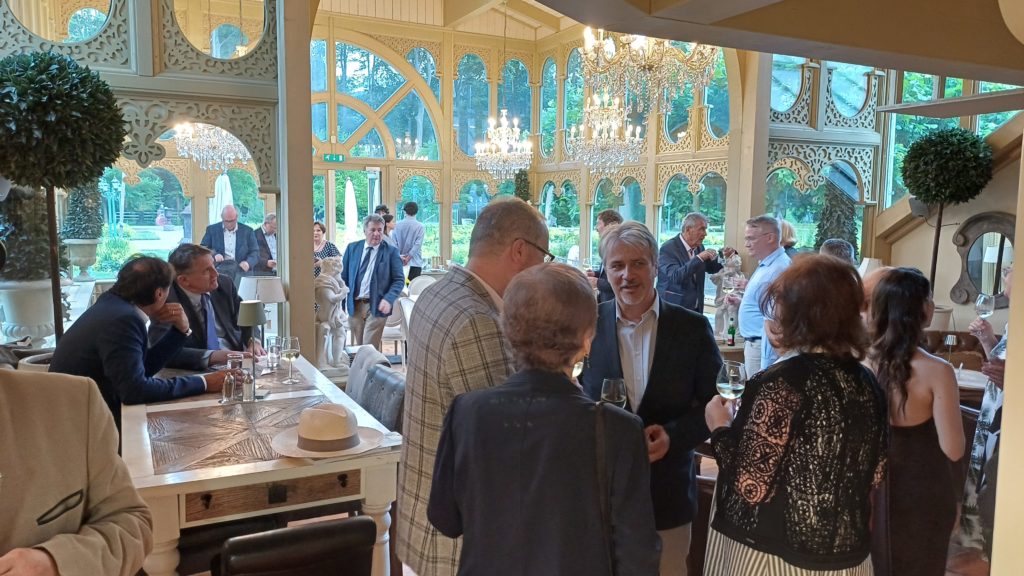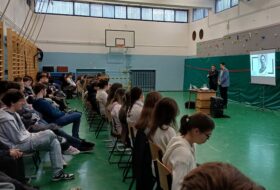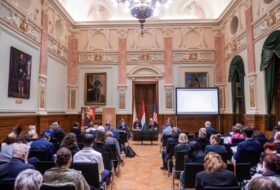The past year, our Foundation organised a panel discussion for the first time at the birthplace of Otto von Habsburg, in Reichenau, Lower Austria, the literary saloon of Wartholz Castle.
The gardens and visitor centre, managed by Mr and Mrs Blazek, regularly host literary events, but they also prioritise memorial gatherings to commemorate the castle and its former residents. A year ago, we displayed a roll-up exhibition on the life of our namesake, while the current event examined the life and reign of the last Hungarian King and Austrian Emperor. For the present exhibition, we used the German variant of our panels, first displayed on the centenary of his death on the island of Madeira in April 2021. The German edition of our book of collection of essays, Good Will and Misfortune, also published in 2021, is planned to be released soon, with extended content compared to the Hungarian original. Our common aim, in agreement with the Collegium Hungaricum in Vienna, is to contribute to the scholarly discourse on the life of the last ruler of the Austro-Hungarian Empire.
After the introductory remarks by Edit Szilágyiné Bátorfi, Hungarian Ambassador in Vienna, the participants of the round table summarised their essays in the volume. Iván Bertényi and Vince Paál outlined the relations between King Charles IV of Hungary and the political elite that supported him. At the same time, Róbert Fiziker and David Schriffl, the latter being the head of the Historical Service of the Austrian Foreign Ministry, analysed Charles’ actions as Austrian Emperor and their repercussions. It was instructive to follow the slow change in Austrian political thought and historical perception of the last Monarch over the past decades.
In addition to the usual precise lectures by the Hungarian and Austrian experts, the Slovenian speakers’ presentations facilitated an understanding of the attitudes of the smaller nations that were marginalised under the dualist system: Gregor Antoličič discussed Charles’ involvement in the First World War, and Professor Andrej Rahten, an old friend of our Foundation, detailed the reaction of Slovenian political opinion to the former ruler’s attempts to return to power.
Gergely Prőhle concluded the discussion by voicing the opinion that the processing of our shared history and the exchange of ideas addressing it may also aid in a better understanding of today’s political and social developments. Accordingly, we would like to continue the series throughout Central Europe following the publication of the German-language version of the collection of essays.
